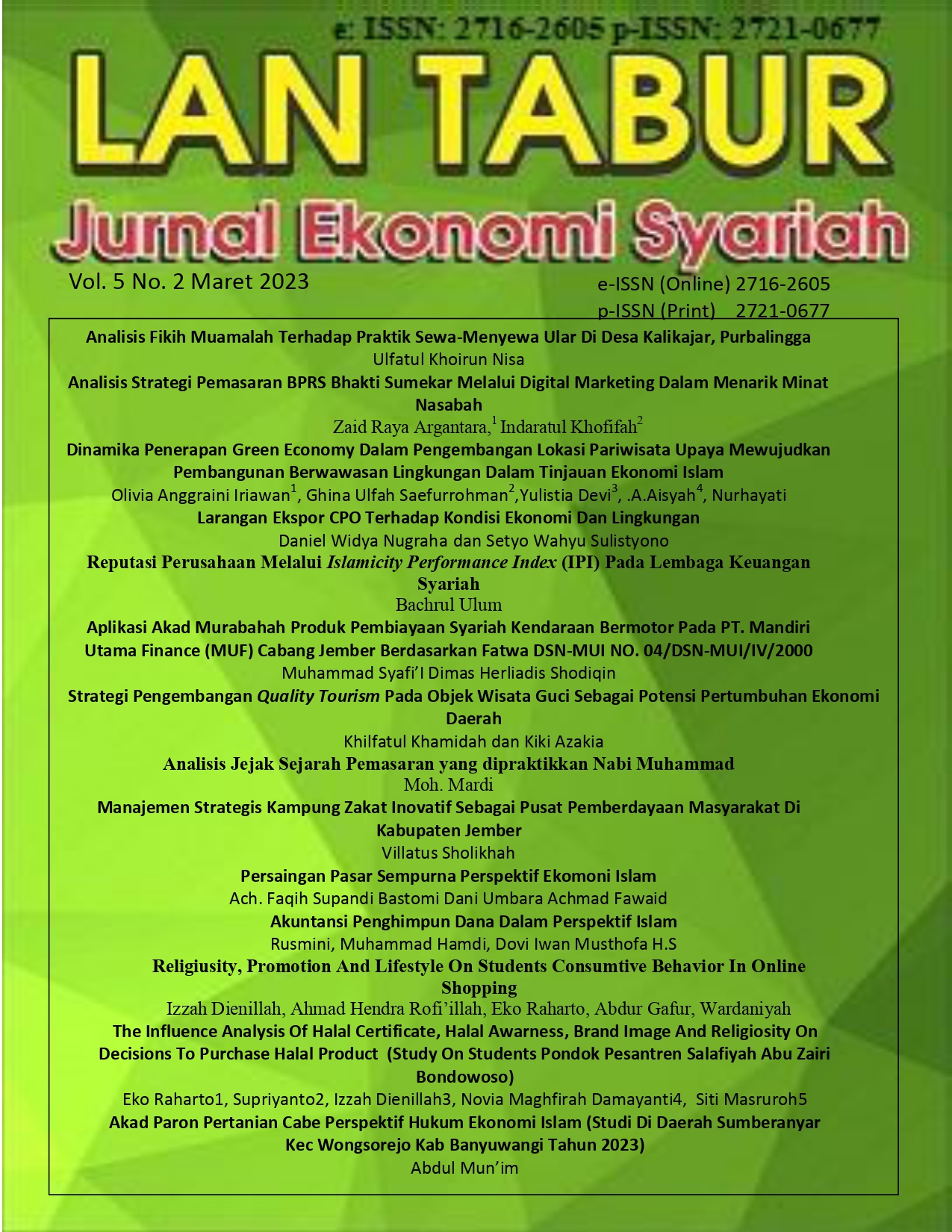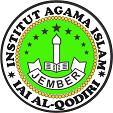MANAJEMEN STRATEGIS KAMPUNG ZAKAT INOVATIF SEBAGAI PUSAT PEMBERDAYAAN MASYARAKAT DI KABUPATEN JEMBER
Abstrak
Badan Pusat Statistik (BPS) Indonesia menyebutkan bahwa jumlah orang miskin banyak berada di kampung. Supaya pemerberdayaan masyarakat kampung dapat dijalankan secara optimal, maka beberapa pendekatan dilakukan oleh para ahli termasuk juga dalam penerapan pemberdayaan masyarakat berbasis manajemen strategis. Implementasi manajemen strategis dalam konteks pemberdayaan masyarakat kampung sudah dilakukan dengan baik oleh Kampung SDGs Bangsalsari dan Kampung Zakat Terpadu Sumber Jambe Kab. Jember. Penelitian ini menggunakan metode penelitian kualitatif dengan jenis penelitian penelitian multikasus. Hasil penelitian menunjukkan, yaitu: 1) perencanaan strategis kampung zakat inovatif terdiri dari perumusan visi dan misi, analisis kondisi lingkungan dan analisis SWOT. Ketiga hal tersebut menghasilkan perumusan strategi, yaitu: pelaksanaan dan peningkatan kerjasama; pelaksanaan survey awal pada masyarakat setempat; pelaksanaan pelatihan kreatifitas, enterpreuner dan sebagainya; pemberian penyuluhan dan pengajian; dan pemberian bantuan; 2) pelaksanaan strategis kampung zakat inovatif difokuskan pada maysarakat miskin, anak yatim piatu, janda tua, lansia dan pengangguran. Pelaksanaan programnya meliputi program yang telah dirumuskan tersebut. Pelaksanaannya berjalan dengan baik dan efektif.; dan 3) Evaluasi strategis kampung zakat inovatif dilakukan dengan menggunakan evaluasi proses dan hasil pelaksanaan kegiatan pemberdayaan. Evaluasi dilakukan untuk mengukur tingkat keberhasilan dalam setiap kegiatan pemberdayaan yang sudah dilaksanakan serta menjadi bahan evaluasi pertimbangan untuk kegiatan pemberdayaan yang akan datang. Kata Kunci: Manajemen Strategis, Kampung Zakat Inovatif, Pemberdayaan Masyarakat
Diterbitkan
2024-10-28
##submission.howToCite##
Sholikhah, V. (2024). MANAJEMEN STRATEGIS KAMPUNG ZAKAT INOVATIF SEBAGAI PUSAT PEMBERDAYAAN MASYARAKAT DI KABUPATEN JEMBER. LAN TABUR : Jurnal Ekonomi Syariah, 5(2), 302-320. https://doi.org/10.53515/lantabur.2024.5.2.302-320
Terbitan
Bagian
Articles










